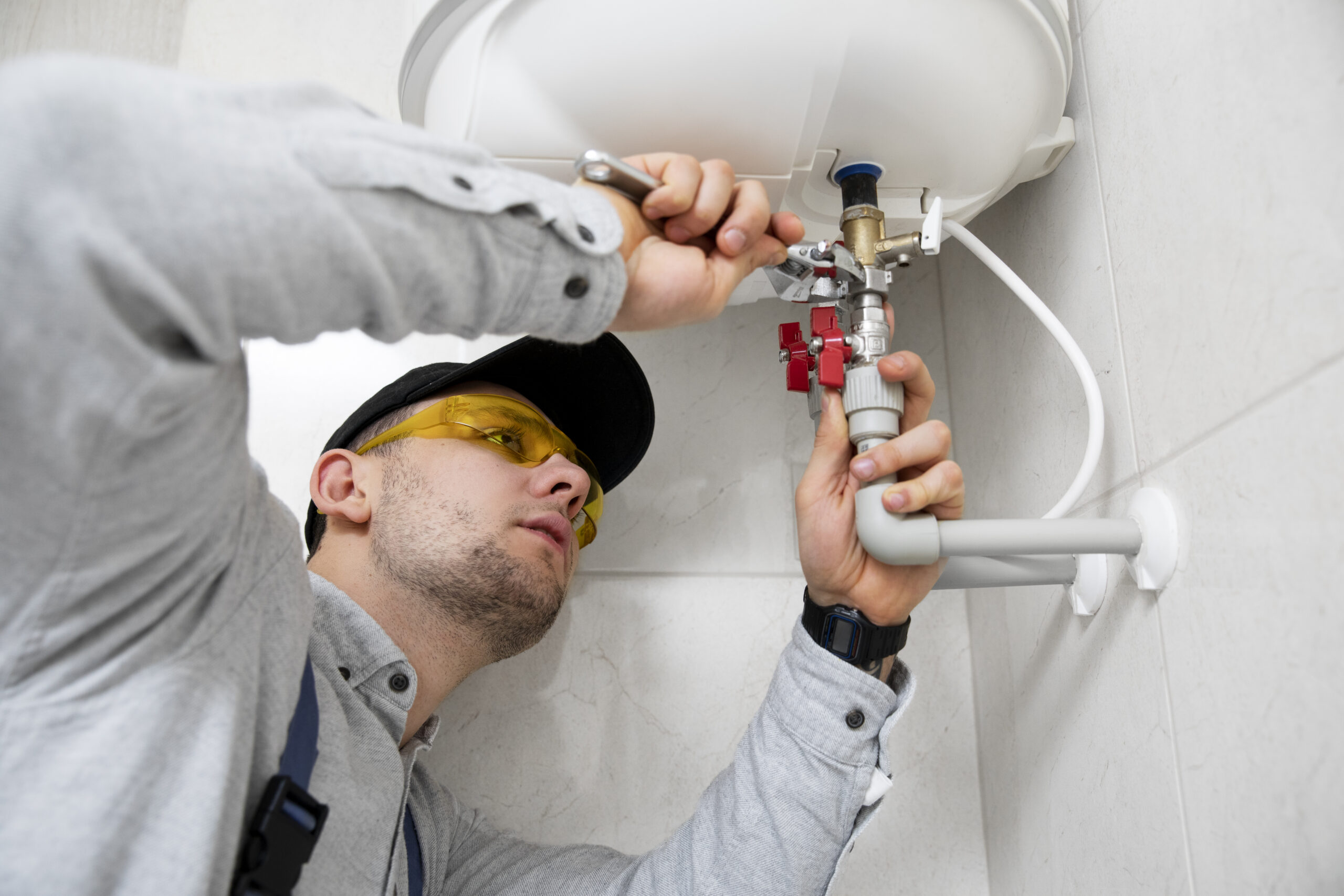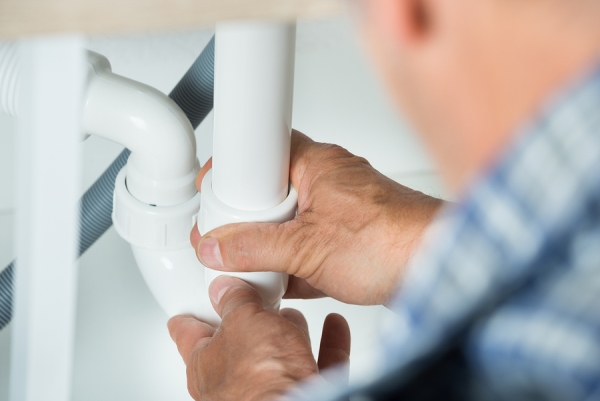Critical Fixes: What to Do Until Help Arrives
Critical Fixes: What to Do Until Help Arrives
Blog Article
We've discovered this post on What to Do While Waiting for an Emergency Plumber down the page on the net and accepted it made sense to write about it with you here.

Pipes emergency situations can strike at any time, causing anxiety and possible damages to your home. Whether it's a burst pipe, a blocked drainpipe, or a dripping tap, understanding exactly how to handle the circumstance up until a specialist plumbing professional arrives can conserve you from further complications. This short article offers necessary emergency situation pipes pointers to aid you alleviate damage and gain back control throughout a plumbing crisis.
Turn Off the Supply Of Water
The initial step in any type of plumbing emergency is to shut off the water supply. For local problems, such as a leaking faucet or toilet, shut off the valve near the fixture. When it comes to a significant leak or burst pipeline, locate your home's main water shut-off valve and turn it off instantly. Recognizing the location of these valves ahead of time can conserve valuable time throughout an emergency situation.
Turn off Your Hot Water Heater
In particular emergencies, such as a burst pipeline, it's smart to shut down your hot water heater. This avoids getting too hot or damages to the device when water stops moving. Turn off the power supply to the water heater (electrical or gas) and allow it cool off to prevent possible risks.
Temporarily Quit a Ruptured Pipe
A ruptured pipe can lead to considerable water damage in mins. To reduce the concern:
Call an expert plumbing promptly to address the problem permanently.
Have an Emergency Situation Plumbing Set
Prepare a basic pipes emergency situation package to deal with small problems effectively. Your set should consist of:
Having these devices available can make a substantial difference in your capacity to take care of emergencies.
Unclog Drains Securely.
A blocked drain can be an irritating and messy problem. Here's exactly how to tackle it:.
If these techniques don't work, stay clear of utilizing too much force, as it might intensify the blockage.
Take Care Of Overflowing Toilets.
An overflowing commode can trigger immediate disorder. Right here's what you should do:.
Address Tiny Leakages with Temporary Fixes.
Small leaks can rapidly become considerable problems if left unattended. Use these short-term fixes until professional help arrives:.
While these solutions aren't irreversible, they can assist reduce water loss and damage.
Take Care Of Frozen Piping Very Carefully.
In chillier climates, icy pipelines are a common emergency. If you believe an icy pipe:.
Know When to Call a Professional.
While quick fixes can aid briefly, certain pipes issues call for immediate specialist interest. Call a plumbing if:.
Without delay contacting an expert makes sure the concern is resolved correctly and avoids additional difficulties.
Protect against Further Damage.
Taking quick activity to lessen damages can conserve you money and time in the long run. Here's exactly how:.
Conclusion.
Plumbing emergencies can be frustrating, however with the right knowledge and devices, you can manage the situation properly up until help arrives. By switching off the supply of water, dealing with small leaks, and making use of short-lived solutions, you can lessen damages and keep your home safe. Remember, these ideas are short-term remedies; constantly consult a certified plumbing to handle the origin of the issue. Prep work and fast thinking are your best allies in any kind of pipes emergency.
8 Helpful Tips for Managing Plumbing Emergencies at Home
If your plumbing system hasn’t failed once, wait for it because almost everyone has a story to tell. Sometimes, it could be simple emergencies such as a leaking pipe, a blocked cistern, or even a big burst pipe. In situations like this, you need to have some handy tips to save you some money and from possible damages.
Take care of minor issues early.
Sometimes, you could have avoided an emergency by taking proactive measures while it was still early. Some major plumbing emergencies can be a result of an ignored minor issue. We recommend that you have items like plumbing tapes and other related items. A plumbing tape can allow you to manage minor leaks before the plumber arrives.
Cut off the water supply.
This tip is essential in almost any type of leakage problem. For problems like minor leakages in the toilet or kitchen, turn off the supply that takes water to the affected pipes. If the leakage is a major pipe, you must shut off the supply valve to the entire building. This will help you avoid flooding your home and neighbors if you share a flat.
Know your plumbing system
Folks typically move into a new apartment without understanding the water supply around the building. This can prove disastrous if a water emergency arises and the plumber is far away. The previous tip will prove useless if you don’t practice this one. More importantly, know where your water shut-off valve is located – you’ll need that knowledge to prevent potential home floods.
Have some common handy tools
There are lots of plumbing emergencies that you can handle without hiring a plumber. That’s why you must keep some tools available always. Some tools that you can use to fix simple plumbing emergencies easily include plumbing tapes, screwdrivers, thread seal tapes, plungers, pliers, tape measures, and rubber gloves.
Insulate your pipes from cold
You’ll save yourself from many plumbing expenses if you protect your water pipes from the cold. This is because of the harmful effects that cold weather can have on your pipes. During winter, your pipes can burst from being overly expected to freezing temperatures. So, make sure insulators are there to keep the pipes working correctly.
Avoid practices that will clog your toilet.
Many people indulge in practices that can damage the plumbing system of the entire building. One of these is when they use their toilet to dispose-off garbage. They flush all kinds of things, such as paper towels, bandages, hairs, female sanitary products, etc., down the toilet. This will block your toilet in the long run, incurring unnecessary expenditures. Dump such waste in the trash instead.
Check your dials regularly.
Sometimes, there could be leakages in your home without noticing them in time. So, constantly monitor your water meter dial. If the dial is reading when there is nobody using water, this is an indicator that there is leaking. Check for leaks immediately. Call a plumber as soon as possible if you can’t find any.
https://www.constructionplacements.com/8-helpful-tips-for-managing-plumbing-emergencies-at-home/

I'm just very taken with What to Do During a Plumbing Emergency and I really hope you enjoyed reading our blog entry. Enjoyed our write up? Please quickly share it. Help another person check it out. Thank you for your time invested reading it.
Here Report this page